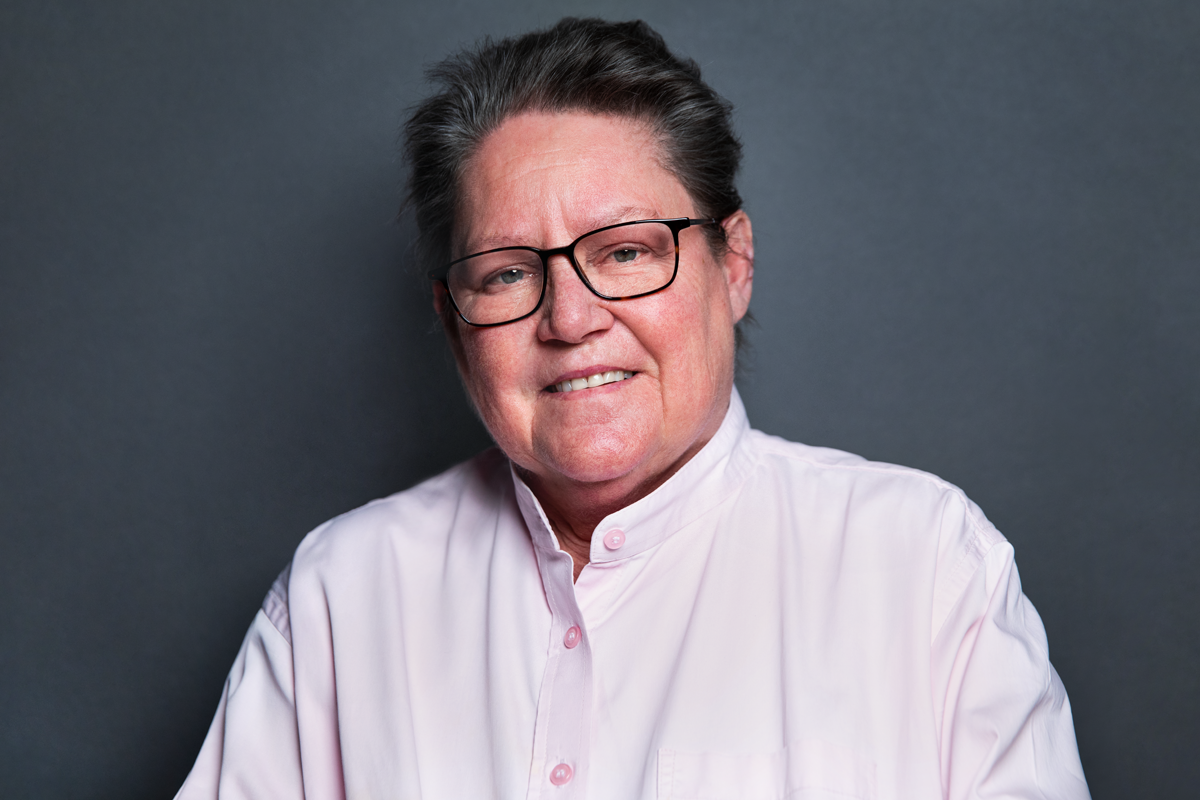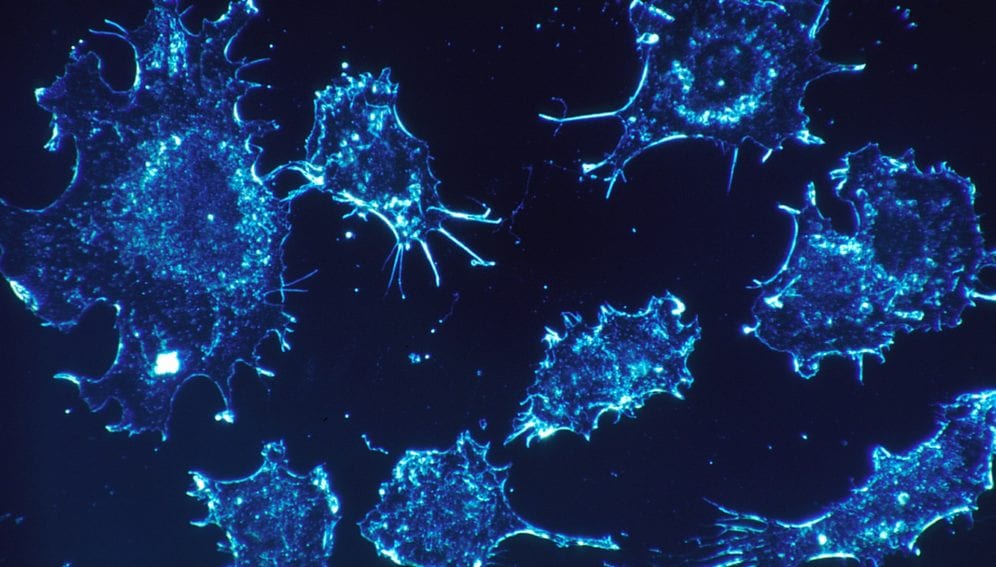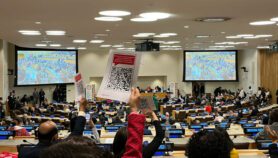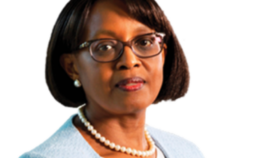Send to a friend
The details you provide on this page will not be used to send unsolicited email, and will not be sold to a 3rd party. See privacy policy.
Cervical cancer, a disease caused by the human papillomavirus (HPV), is a big concern in Africa.
The sexually transmitted disease is the second most frequent cancer among African women, according to the International Agency for Research on Cancer, a subsidiary of the World Health Organization.
Of the 119,284 women diagnosed with cervical cancer every year in Africa, 81,687 die from the disease. With an estimated 372.2 million women of at least 15 years old who are at risk of developing cervical cancer in Africa, some scientists are at the forefront of halting this epidemic.
Lynette Denny, a professor and head of the Department of Obstetrics and Gynaecology at South Africa’s University of Cape Town and Groote Schuur Hospital, is an award-winning scientist who has been researching into cervical cancer prevention and treatment among poor women for 25 years in South Africa.
“I would like to advise young women who want to venture into scientific careers that they must be dedicated.”
Lynette Denny, University of Cape Town
In an interview with SciDev.Net this month (20 December), Denny described her journey to becoming one of the top women scientists in Africa, and how her desire to give back to society is helping her to fight cervical cancer on the continent.
Where were you born and how was your early childhood?
I was born in Pretoria but grew up in Durban, South Africa. My parents taught me to be against apartheid — the segregation of black and white people. My mother, being a feminist, strongly instilled in me a rejection of oppression of women, black people and anyone who was not allowed to develop their potential.
It has been a long journey — from elementary school to undertaking master’s and doctoral theses at the university level.
My first awareness of the horrors of apartheid developed when I was about 12 years old. I was exposed to the conditions under which black people were forced to live. I felt particularly rage towards the systematic, institutional racism and sexism practised in the country and could not understand the depth of the cruelty inflicted on other people.
Why have you been researching into cervical cancer?
I have focused my research on cervical cancer because it is a type of cancer that is preventable and treatable. In South Africa, the disease is particularly common among poor black women who have limited access to healthcare.
There are over 200 human papillomavirus (HPV) types, of which 40 infect the genital tract, and about 14 are associated with cancer. Not all HPV types cause cancer. Human papillomavirus can cause the cells of the cervix to develop into abnormal cells. These cells have the potential to progressively develop into cancer over usually ten to 15 years.

Lynette Denny, a professor and head of the Department of Obstetrics and Gynaecology at South Africa’s University of Cape Town and Groote Schuur Hospital
The Pap smear is a type of test that is able to detect these abnormal cells. If women have them, they are referred to doctors like myself for further evaluation. If the abnormalities are detected, the abnormal area can either be the surgically removed through a process called ablation. This approach requires access to a site to take the smears, a laboratory to test them, means to get the result back to the patient and personnel able to perform the appropriate treatment.
In 1995, my team and collaborators from Columbia University in the United States recognised the limitations of Pap smears and the need for appropriate laboratories and staff. We then designed a study comparing the Pap smear to three other types of screening tests: testing the cervix with HPV, visual inspection of the cervix with acetic acid, and using a specially adapted camera to create a photograph of the cervix called cervigram.
We screened 3,000 women, followed by another 3,000 women, nearly 7,000 women later, and compared the different tests.
Cervical cancer screening programmes remain essential to reducing cervical cancer in women despite the availability of HPV vaccines. Screening is important for all women but it is particularly important for women living with HIV given the high prevalence of HPV in this group and risks associated with progression notwithstanding antiretroviral therapy. Currently, HPV-based screen-and-treat programmes are recommended by the World Health Organization.
What further research are you conducting to fight cervical cancer in South Africa?
In our current study, we are investigating the clinical usefulness of a new method of automated digital imaging of the cervix. We are evaluating the effectiveness of integrating this new mobile technology into cervical cancer screening programmes for low-and middle- income countries. We are building on a long-term collaboration between the University of Cape Town and Columbia University that demonstrated the safety and efficacy of HPV-based screen-and-treat in South Africa.
We have recently completed a study demonstrating the feasibility and outstanding performance of a point-of-care HPV DNA test in South Africa. This is a laboratory test in which cells are scraped from the cervix to identify the genetic make-up or DNA of HPV.
We propose to extend this work to investigate whether automated digital imaging can be used as a standalone screening test to replace HPV DNA testing and whether automated digital imaging can be used as a triage test for women who test HPV DNA positive.
Also, we aim to investigate operational challenges and facilitators to integrating the new imaging technology into cervical cancer screening programmes.
We propose to undertake studies to address these aims among women living with and without HIV in South Africa. Our overall goal is to strengthen cervical cancer screening approaches to reduce cost and improve the effectiveness of screening.
What are some of the milestones in your journey to becoming a top female African scientist?
My team and I have received many prizes and acknowledgements for our work. I received the first Shoprite Checkers SABC 2 women of the year award for science and technology in 2004. I have also been honoured by the International Agency for Research on Cancer.
In 2012, I received an award from the UK-based Royal College of Obstetrics and Gynaecology. I have also been feted with the humanitarian award from the International Gynecologic Cancer Society.
And last month (7 November) I was honoured with a gold medal for lifetime achievement in science by the South African Medical Research Council. This is a great honour and justifies all the dedication it required from me. It is important to acknowledge that the work was done as a team effort with the intention of empowering our patients.
How do you balance your academic career and other life responsibilities?
Critical to our success has been a strong collaboration with a variety of specialists such as pathologists and epidemiologists and ensuring that the outcomes of our work serve the women who participate in our research studies at a primary health care level.
An academic career is difficult and work always seems to be dominant and require the most of my attention. Life responsibilities at home could be detrimental to academic work. However, one has to strike a balance between the two.
What inspires you the most in your career?
I have been inspired by my collaborators, especially those from the Columbia University and the desire to provide quality health care to my patients, along with training my colleagues. I also feel and felt a strong desire to give back to society. I believe that research is not a luxury; it is a necessity.
When I began my career many years ago, I didn’t imagine reaching where I am today. I imagined a rather mundane hard-working life, which it has turned out to be. And I would like to advise young African women who want to venture into scientific careers that they must be dedicated and realise that it is not an easy journey. However, the harder you work the greater the satisfaction.
Q&As are edited for length and clarity.
This piece was produced by SciDev.Net’s Sub-Saharan Africa English desk.
References
Human Papillomavirus and Related Diseases Report (HPV Information Centre), 2019.














